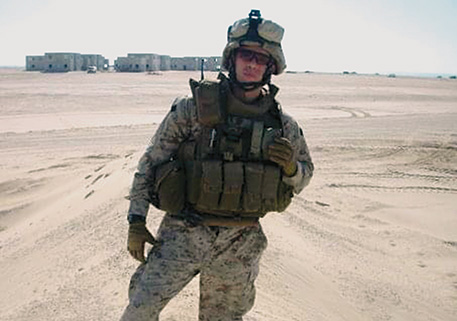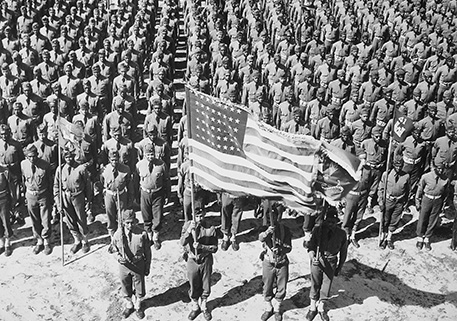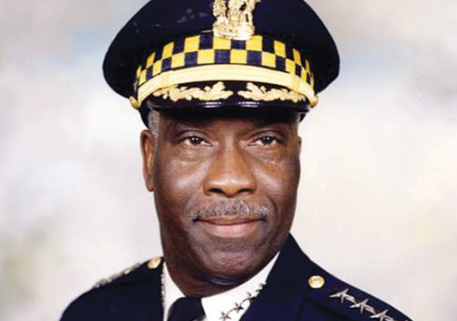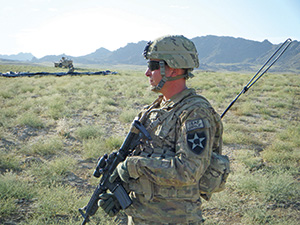
The van that Daniel Diebold was living in when a DAV chapter helped him was still better than what he had just been through.
The veteran of the wars in Iraq and Afghanistan was four months out of the Army when his life almost ended with a gallon of liquor on a cold beach near Tacoma, Washington. That was the day he said he decided to turn his life around.
Diebold’s initial transition out of service started in 2014 with a struggle to find employment. His plan to enter an aircraft mechanic training program had fallen through, leaving him to rely on unemployment benefits. Meanwhile, he was not getting the results on his job search that he had hoped for.
Diebold said he drank to mask a painful degenerative spinal cord condition related to his service.
There were also troubling memories that he couldn’t shake, and what he saw haunted him until he sought treatment through the Department of Veterans Affairs.
“I saw it a lot when I slept,” Diebold said.
A suicide attempt
By the end of 2014, Diebold hadn’t seen any responses to job applications.
“The drinking just got worse, and then I let it take control of me,” Diebold said. “It was January of 2015, is when I tried to take my life.”
He sat next to Puget Sound in University Place, Washington, with a bottle of alcohol, having just missed an appointment with his unemployment representative and losing his unemployment check. So, he said, he drank as much as he could.
“They said they found me halfway in the water, and if it would have been another 30 minutes, I’d probably be dead,” he said.
Diebold said he needed therapy to walk by himself again, but he decided to work on himself by taking advantage of every Department of Veterans Affairs program he could get into for treatment.
Seeking that help made all the difference, he said.
“I took a whole lot of classes when I tried to kill myself,” Diebold said. “A lot of that has helped. Yeah, I still get a little shaky, but not like before.”
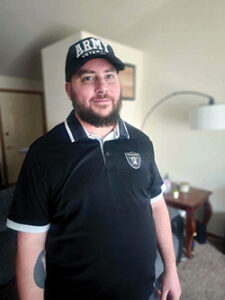

A van and a busted plan
Three months after the attempt on his life, Diebold said he was evicted from his apartment, but he was starting to receive VA benefits for the first time. He said he lived in a moving trailer until a new VA benefit check allowed him to buy a van and head to Wisconsin to be closer to his children.
When he arrived, he found out that the company that agreed to rent an apartment to him had actually rented it out to someone else. With nowhere to go, he was forced to park at a shopping center and continue living out of his van.
It was during that period that a veterans service office counselor pointed him to a DAV office.
The first person Diebold met when he walked in was DAV Department of Wisconsin Adjutant Matt Kempainen.
“So I went there and met Matt, and he said, ‘We can probably help you out. If you can find a place, we can probably help get you in there,’” Diebold said.
Diebold admitted he didn’t know anything about DAV at the time, but Kempainen and others showed him the depth of the services and advocacy provided. To express his gratitude, Diebold threw himself into volunteering to ensure more veterans receive help.
Holly Hoppe, a chapter service officer at Chapter 3 in De Pere, Wisconsin, said she started working on a claim for Diebold. The claim led to a significant increase in his benefits.
“He wasn’t able to maintain his job because of his injuries, so he got an increase,” Hoppe said.
She said Diebold spends time talking with veterans, especially those of his era, and advocating for them wherever he goes.
“With Danny being homeless at one time, he’s encouraging veterans to get help before they become homeless,” Hoppe said.
Diebold has since become commander of Chapter 3, and he assists Kempainen with fundraising and outreach. Kempainen said he initially told Diebold’s story to others, but now Diebold is confident enough to tell it himself.
“Danny’s story is so inspiring, and it gives other veterans hope and inspiration to seek out the help they need for themselves instead of waiting,” Kempainen said.
Selfless service is one of the things the military recruiter talks about when you sign a contract, Diebold said. In that spirit, he is training to become a chapter service officer so he can help other veterans with their claims.
Today, he is still in the same apartment the chapter helped him secure, paying his own rent and saving for a house—all while spending his time trying to assist others.
“It doesn’t stop when your contract ends, you know? You’re still wanting to help out your brothers- and sisters-in-arms,” Diebold said. “And it’s great to have each other’s back.”

